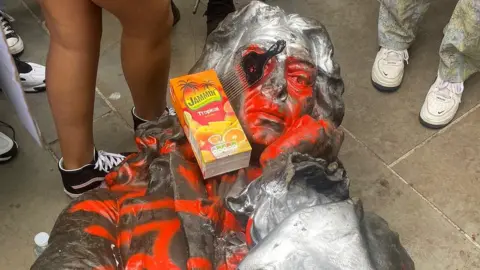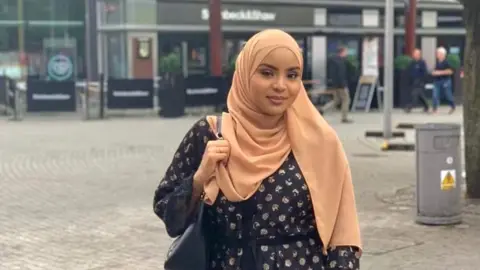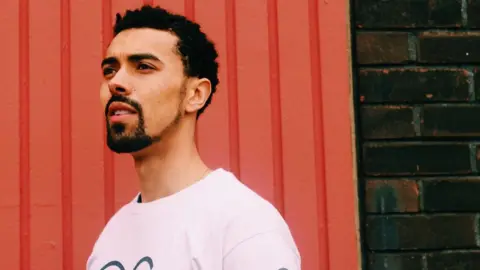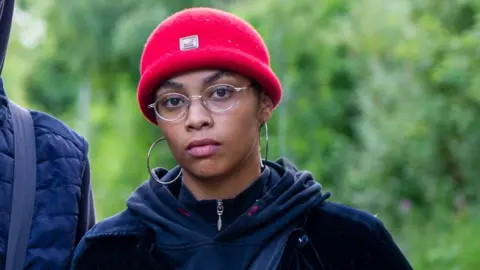Edward Colston: 'Why the statue had to fall'
Protesters said seeing the statue of slave trader Edward Colston being toppled was "empowering".
A Black Lives Matter demonstration in Bristol on Sunday culminated in protesters tearing down the controversial bronze figure and throwing it into the harbour.
The statute has been a source of controversy in the city for years, with repeated calls for it to be removed.
Some of those who saw it fall told the BBC why they felt it had to come down.

'Empowering moment'
 Salma Omar
Salma OmarSalma Omar, 23, was born and raised in Bristol and filmed the moment protesters pulled the statue down.
"I never thought I would witness such an empowering moment that I can tell my children about," she said.
"That monument is of a man responsible for taking the lives of so many African people, how can anyone be proud of that, how can you condone that?
"The people have spoken and I would be disappointed if the statue was to go back up.
"During the march we stood on one knee for eight minutes to pay tribute to George Floyd and my knee got tired I had to switch.
"To think that's how long that officer had his knee on George Floyd's neck was emotional."
Allow X content?

'Visceral moment'
 @beulahdavina
@beulahdavinaKeziah Wenham-Kenyon, 25, has been living in Bristol for four years and believes the statue "is part of a history that shouldn't be glorified".
"We have suffered transgenerational trauma and this is the result of it," he said.
"This is a very raw and visceral moment for the Black Diaspora."
"It's important to highlight a lot of the people in the video taking down the statue were white, in an act of solidarity, as it's not a black people problem, it's a human problem.
"This is the new normal we are setting coming out of lockdown and statue of a slave trader doesn't align anymore."
'Emotional strain'
 Chandra Prasad
Chandra PrasadSophia Harari, 22, has been living in the city for a year. She said the statue being taken down represented a "standing solidarity. Bristol is saying we stand with you Black people".
"The past few weeks have been a really big emotional strain and to be a part of the same space as people who feel the same as I do has been significant.
"This (the pandemic) is a very significant moment for the world, however the idea that blackness isn't seen or treated as equal in our society is something that surpasses that.
"I want people to understand the significance of this movement - it overshadows the pandemic."
"This is something that has gone on for hundreds of years and we're still at a point where we have to shout and scream to say that we are equal.
